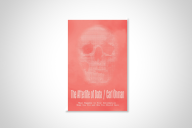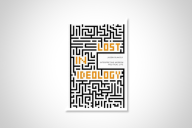You have /5 articles left.
Sign up for a free account or log in.
Right after 9/11, the obituaries started to appear: Irony, the reports said, was dead. Either that or in really bad condition.
It had been a very 1990s thing, this irony. Never before in human history had so many people so often used that two-handed gesture to inscribe quotation marks in the air. Or pronounced the word really with an inflection conveying the faux enthusiasm that doubled as transparent contempt (as in; "I really like that new Britney Spears single"). The manner had been forged in earlier times -- by pioneers at the Harvard Lampoon, for example. But it really caught on during the cold peace that followed the Cold War. Suddenly, irony became available to everyone, on the cheap. It was the wit of the witless, the familiar smirk beneath the perpetually raised eyebrow.
And then it died. Hard realities broke through the callow veneer of detachment. Everybody became very earnest. And then America entered its present golden age of high seriousness.
Oh, no, wait.... That last bit never actually happened. The rest of the story is familiar enough, though. So much so, in fact, that I am reluctant to note my own recent suspicion that, after all, it's more or less true. Irony really is dead.
It's not just that irony is a much richer notion than sarcasm. Broadly defined, it means the coexistence of two radically counterposed (even mutually contradictory) meanings within the same utterance. The simplest case would be saying, "What a beautiful day!" in the middle of a hurricane. But the subtler kinds spin out into infinity....
There is the irony of Plato's dialogues, where men who are very sure of their own competence try to explain things to Socrates (who says that he knows nothing, yet quickly, through simple questions, ties their arguments into the Athenian equivalent of pretzels). There is dramatic irony, in which action on stage means one thing for the characters and something very different for the audience. And let's not even get started on where the German philosophers went with it -- beyond noting that it turned into something like the essence of art, consciousness,and human existence.
I'm not saying that there is no connection at all between the Philosophical Fragments of Friedrich Schlegel and the camp value of listening to The Carpenters' Greatest Hits. Actually, they go together pretty well, if you're in the right mood. (As Schlegel put it: "For a man who has achieved a certain height and universality of cultivation, his inner being is an ongoing chain of the most enormous revolutions." So you might start out feeling all ironic about Karen Carpenter, then end up overwhelmed by her voice.)
But that just makes it all the more sad to realize that the rumors are true. Irony is now extinct, or at least in a coma. I got the evidence last week and have been bummed ever since.
The proverbial lightbulb over the head went on while reading American Prometheus: The Triumph and Tragedy of J. Robert Oppenheimer by Kai Bird and Martin J. Sherwin, published last month by Alfred A. Knopf. It is a massive book, the product of about a quarter century of research into the physicist's ascent to power and his marytrdom under the original wave of McCarthyism.
It is an absorbing book. The authors are both distinguished, and the story they tell is almost unnerving in its contemporary resonances. My reviewer's copy now has the usual marks in the margin to highlight various passages that made a strong impression.
But flipping back through it now, I find the record of another kind of readerly response. At some point, the authors begin applying the word "ironic," in its various forms, to situations occuring in Oppenheimer's life. And astonishingly enough, it seems that the authors never manage to use it in a meaningful way.
For example, in the spring of 1934, Oppenheimer earmarks three percent of his salary to help German physicists who are fleeing the Nazis. "Ironically," write Bird and Sherwin, "one of the refugees who may have been assisted by this fund was [Oppenheimer's] former professor in Gottingen, Dr. James Franck." (Here, it appears that they think "irony" means either "coincidentally" or "oddly enough.")
During the depression, Oppenheimer's wife had been a Communist who, "ironically, survived on government relief checks of $12.50." (Ayn Rand living on welfare -- now that would be ironic. But an unemployed left-winger?)
Other examples could be offered. In no case that I recall do Bird and Sherwin use the word in anything like an appropriate way. Which is all the more striking because Oppenheimer's story is thick with ironies. For example, during the McCarthy years, his effort to rebuff a Soviet agent's attempt to recruit him as a spy in the early 1940s turns into the "proof" that he was disloyal. It is a reversal worthy of Sophocles -- a situation that is profoundly ironic.
Not that the authors ever use the word in that (for once, appropriate) way. Instead, we stay trapped in that Alanis Morrissette song from the mid-1990s:
It's like rain on your wedding day
It's a free ride when you've already paid
It's the good advice that you just didn't take...
And isn't it ironic ... don't you think?
To which the answer is, of course, "No." Such things are not ironic in any sense. (Inconvenient, yes. Ironic, no.)
Now, it could be that I'm overreacting. Maybe the fact that two intelligent and capable writers -- in a major book, on an important topic, published by one of the country's top presses -- end up sounding like Alanis Morrissette is not as worrisome as it seems. Perhaps irony is not dead after all?
Either that, or we need to define the word in a new way. "Ironic, adj., of or pertaining to a situation involving no irony whatsoever."








